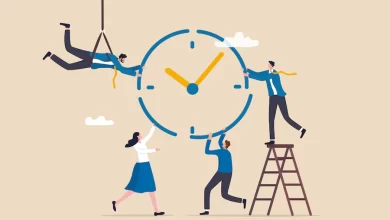Writing To Learn And Why It Matters

Writing things down can help you learn better, according to psychology research and learning experts. Making notes after taking online tutoring sessions helps you remember information, but it is the act of writing itself that keeps it in your mind forever.
We learn more actively as a result of writing as it helps us monitor our knowledge and conduct retrieval practice. The act of writing involves several mechanisms that are at work: repetition, reinforcement, and critical reflection on new information.
It is crucial to write for the purpose of learning, because that pushes us even further, to discover what information we do not already know.
Writing leads to learning, or to put it in another way, scribbling leads to learning. In other words, you can call it scribbling as the way to become skilled. From frazzled managers to schoolkids to overworked doctors, the write-to-learn approach can be of great use to anyone. Simply put, writing down information is one of the best ways to learn, useful in diverse professional fields.
The Lesson of Mark Bernstein
The surgeon once documented every error that occurred in his emergency room as an example. Over the course of an entire decade, not just for a few weeks or days. The results were astronomical: the number of oversights of all kinds decreased dramatically as a result of this shift. The quality of his team’s work improved remarkably after tracking their errors.
During this time there were fewer than ten mistakes per month. In fact, this rate dropped by half during those ten years, and now is almost zero. This experiment demonstrated to us a basic lesson, supported by modern psychology as well. Writing allows us to learn from our mistakes.
As a person who is interested in learning, one of the most valuable assets that you have is your ability to critically analyze information.
Why is it we learn when we write?
In his surgery, Bernstein put into place a written record which psychologists will argue involved ‘feedback’ or review. Research has found that being aware of an action is critical, so you should record it. The process goes like this: we must monitor ourselves more closely in order to notice mistakes when they happen. By doing so, a feedback look is created that results in a change in the activity. Using this more engaged approach, Bernstein tracked mistakes in his practice. It was fairly obvious that most of the errors in question occurred when machines failed, equipment malfunctioned, or instruments fell to the ground. However, we also discovered smaller errors when we recorded the errors, such as holding the surgical instruments incorrectly, or small delays.
By cultivating awareness, self-monitoring is possible through writing information down. Taking the time to correct small mistakes changes the game. We must be aware of our mistakes in order to learn from them.
How to implement a ‘write to learn’ method
The practices of monitoring, recording, and providing feedback can be undertaken by anyone. Keeping track of your performance over time is as easy as jotting down notes in a journal or notebook.
The key to tracking and monitoring results, according to some, is using video. There is no middleman in the filmmaking process, which allows for precise feedback. In order to gather game footage, Jon Gruden, a well-known NFL football coach, collected game footage dating back over a decade.
At ESPN, Gruden still utilizes his library of football practices and games to commentate on games. An ESPN reporter once asked about Gruden’s video collection. It included dozens of clips that included every passing play and play in the NFL. Gruden used this method when he was a coach to teach his teams, and he later used it to analyze games.
Mastering a subject starts with careful recording of what you know and don’t know.
Writing offers reinforcement
We become more aware when we record and monitor. You are more likely to improve your performance if you focus on the results of your actions. A simple idea, but difficult to implement. It is important for us to acknowledge the fact that few people approach almost any aspect of life with a constantly improving mentality. Take for instance how most people drive. Most people aren’t worried about improving everyday skills, such as driving or navigation.
In terms of public speaking, it is easy to say the same. It is not uncommon for people to make mistakes when speaking in front of others. In fact, it is not uncommon for individuals to make the same mistakes over and over again. It is not uncommon to make a speech-giving fumble when speaking too quickly, failing to meet the audience’s eyes, or fiddling with your phone.
Humans have a tendency to go on autopilot out of the box from birth, almost as if we’re born to do it. Whether you are a professional athlete like Mark Bernstein or a surgeon like Mr. George Rosenberg, any task that is carried out everyday can become an everyday routine activity.
In large part, why self-tracking works is due to the fact that we lose consciousness during our activities. In order to achieve this, we must reexamine our autopilot settings and force ourselves to ask questions.
Tracking our patterns
It is sometimes possible to find patterns in our behavior when tracking it. Some of those patterns may be known to us already. According to Mark Bernstein, most of the mistakes his surgical team made could have been avoided. Small errors often resulted in big consequences – like contamination of instruments, for example. Mistakes might also point to less intuitive conclusions regarding our activities. Bernstein, for example, noticed that less mistakes were committed when there were more patients in his surgery. Bernstein’s team discovered that new doctors and nurses did not necessarily make more mistakes than those who had been with the team longer.
In one instance, a person dropped parts of his or her skull on the ground. This is a heartbreaking experience to recall. Our efforts in monitoring yield real results and progress, regardless of our egos.
We learn more actively by writing because it engages us in retrieval practice and helps us monitor what we know.
Awareness of issues helps to make changes
Being more aware of your performance is the key to improving at almost anything. Just take the weight loss industry as an example. If you want to lose weight, you don’t have to give up carbohydrates, or make your meals look like cavemen’s. A journalist from Vox recently investigated whether there are any keys to weight loss. When she called more than a dozen prominent weight loss specialists, she discovered that a common factor could be responsible for losing weight and keeping it off.
The process was simple. In order to lose weight in the long run, people paid close attention to what they ate, as well as how they performed. The idea was to observe how many calories went into the body, as well as how this correlated with the weight they carried.
People who lost weight for a long time monitored and tracked their progress.
Weight check-ups, for example, were largely practiced by those who achieved weight loss over time. Food diaries are recommended by some experts, similar to Dr. Bernstein’s journals. You must identify exactly what needs to be changed when dieting or implementing any other shift.
How can this help us to ‘learn better’
There is a common logic that applies to learning every subject, regardless of the topic with homework help platforms. First, you should know what you already know, and then you should determine what you still lack. Taking this into account, you should be aware of your strengths and where you need to improve if you wish to become an expert. In order to master a subject, it is advisable for you to write down what you know, and even what you do not know. The practice of writing something down will probably result in the prospect of spending more time thinking about it. It has been shown that even a three-year-old can learn more efficiently through reflection if he or she uses it.


